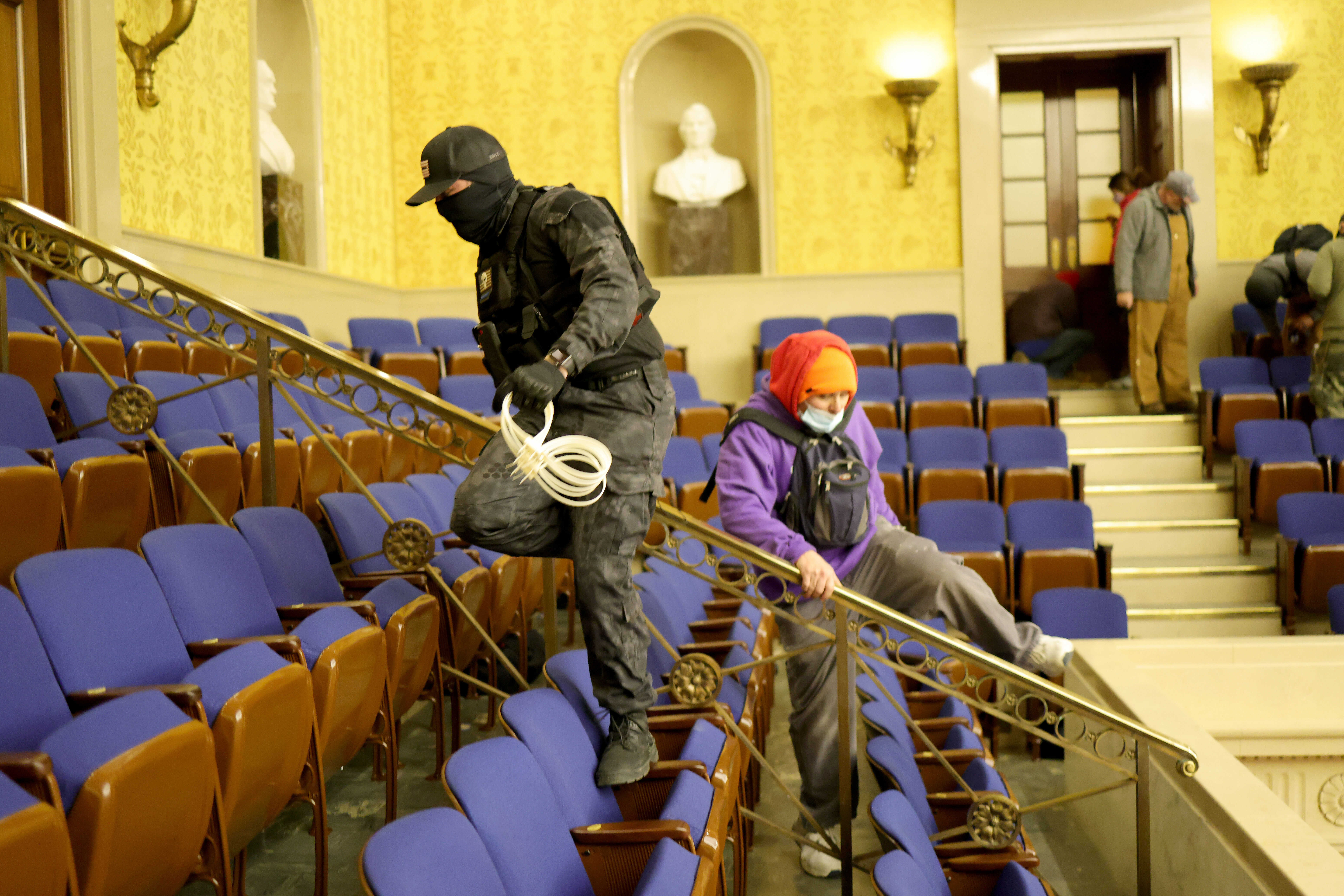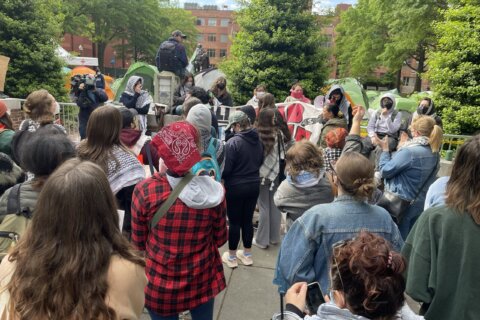
The Tennessee man pictured holding several flexible plastic handcuffs and a Taser during the violent Jan. 6 takeover of the U.S. Capitol has been ordered back to Washington, D.C. until his next court appearance.
On Sunday, Chief U.S. District Judge Beryl Howell ordered Eric Munchel, 30, to return back to D.C., blocking a Nashville federal magistrate’s order that would have placed him under home detention before his next court date.
In a Sunday appeal of the release order, D.C.’s Acting U.S. Attorney Michael Sherwin said evidence already showed Munchel could face additional charges far more serious than civil disorder by impeding law enforcement and federally protected functions, entering restricted grounds, felony violent entry and conspiring with his mother, Lisa Eisenhart, to commit the offenses.
“The evidence amassed so far subjects the defendant to felonies beyond that with which he has been charged so far, including obstructing Congress, interstate travel in furtherance of rioting activity, sedition and other offenses,” the court filing said.
Since the crimes Munchel was charged in D.C., federal law specifies a motions and rulings in the jurisdiction where the incident happened take precedence.
Munchel’s federal public defender said his client found the zip ties in the U.S. Capitol. However, prosecutors say by the time he entered the Senate chamber, “dressed in combat attire from head to toe,” Munchel “marched throughout the Capitol searching for members of Congress who he believed had committed ‘Treason.'”
While the federal crime of treason requires action by an American to overthrow the U.S. government, sedition — technically seditious conspiracy — involves conspiring to overthrow the government.
The maximum penalty for sedition is 20 years in prison.
Sherwin, in his appeal, argued every person in the Capitol contributed to the chaos and the danger posted to law enforcement, the vice president, members of Congress and the peaceful transfer of power.
“It was designed to intimidate Members of Congress and instigate fear across the country,” Sherwin wrote. “Make no mistake: the fear the defendant helped spread on January 6 persists — the imprint on this country’s history of a militia clad insurrectionist standing over an occupied Senate chamber is indelible.”
The decision comes after Magistrate Judge Jeffrey Frensley said Friday he saw no proof of Munchel’s intent when he entered the U.S. Capitol.
While he ordered Munchel’s release, Frensley stayed his order until Monday at 11 a.m.
Court records do not indicate when he will make his initial appearance in U.S. District Court for the District of Columbia.








